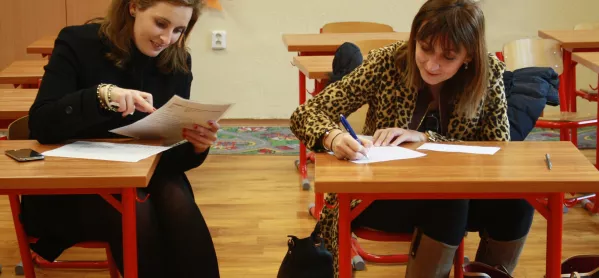Only 55% of parents ‘engaged in home learning’
Share
Only 55% of parents ‘engaged in home learning’
Only 55 per cent of parents are fully engaged with their children’s home learning during lockdown, according to a survey of teachers and heads.
The survey, by the National Foundation for Educational Research, shows that parental engagement is significantly lower among the parents of secondary students, compared with primary pupils (48 per cent, compared with 56 per cent).
And teachers from the most deprived schools reported that parental engagement is significantly lower than those teachers in the least deprived schools (41 per cent compared with 62 per cent).
Coronavirus: Parents demand choice on sending children to school
Closing the gap: The lockdown challenge for teachers
Exclusive: Covid-19 ‘widens achievement gap to a gulf’
The report states: “A key consideration for senior leaders and teachers is how they can engage and enable parents to support their child’s remote learning effectively…Working closely with parents has been identified as an important avenue through which schools are able to improve pupil engagement and minimise the widening of educational inequalities.”
Coronavirus: Disadvantaged pupils ‘less likely to be engaged in remote learning’
The Pupil Engagement in Remote Learning report is based on findings from a representative survey of 1,233 school leaders and 1,821 teachers in England in mid-May.
The report also looks at access to IT and the type of support received from schools as factors influencing pupils’ engagement during school closures.
It also says that pupils in the most disadvantaged schools were less likely to be engaged in remote learning than those in the most advantaged schools, and that limited pupil access to IT at home was “a significant challenge”, particularly for schools with the highest levels of deprivation.
Carole Willis, chief executive at National Foundation for Educational Research, said: “There are considerable differences in the levels of pupil engagement in remote learning, particularly among the most disadvantaged pupils. This supports a growing evidence base highlighting the risk of the attainment gap widening as a result of this pandemic. There is a pressing need for a comprehensive and long-term plan to address this issue.”
Teachers and heads were asked in the survey to indicate, on a sliding scale, what percentage of their pupils’ parents/carers were “fully engaged with home learning (by encouraging them to complete work and/or helping with learning activities, as appropriate)”
Mary Bousted, joint general secretary of the NEU teaching union, said: “There isn’t a school leader in the country who isn’t deeply worried about the outlook for their disadvantaged students and what additional issues their families may face because of Covid-19.
“We simply haven’t seen from government the bold steps or empathy in response to the disadvantage and harm caused by the disruption from this pandemic. The NFER report shows that a quarter of pupils have limited access to IT at home.
”[Education secretary] Gavin Williamson confirmed in the Commons last week that only around half of requests for the government’s free laptop scheme for disadvantaged students have so far been met. This needs to be seriously addressed. Children and young people living in low-income families must be given the resources they need to learn at home, including books, creative resources and access to technology.
“To cope with the huge issues and problems that have arisen from the pandemic, we urgently need to see a national education plan in place.”
The Department for Education has been contacted for comment.




